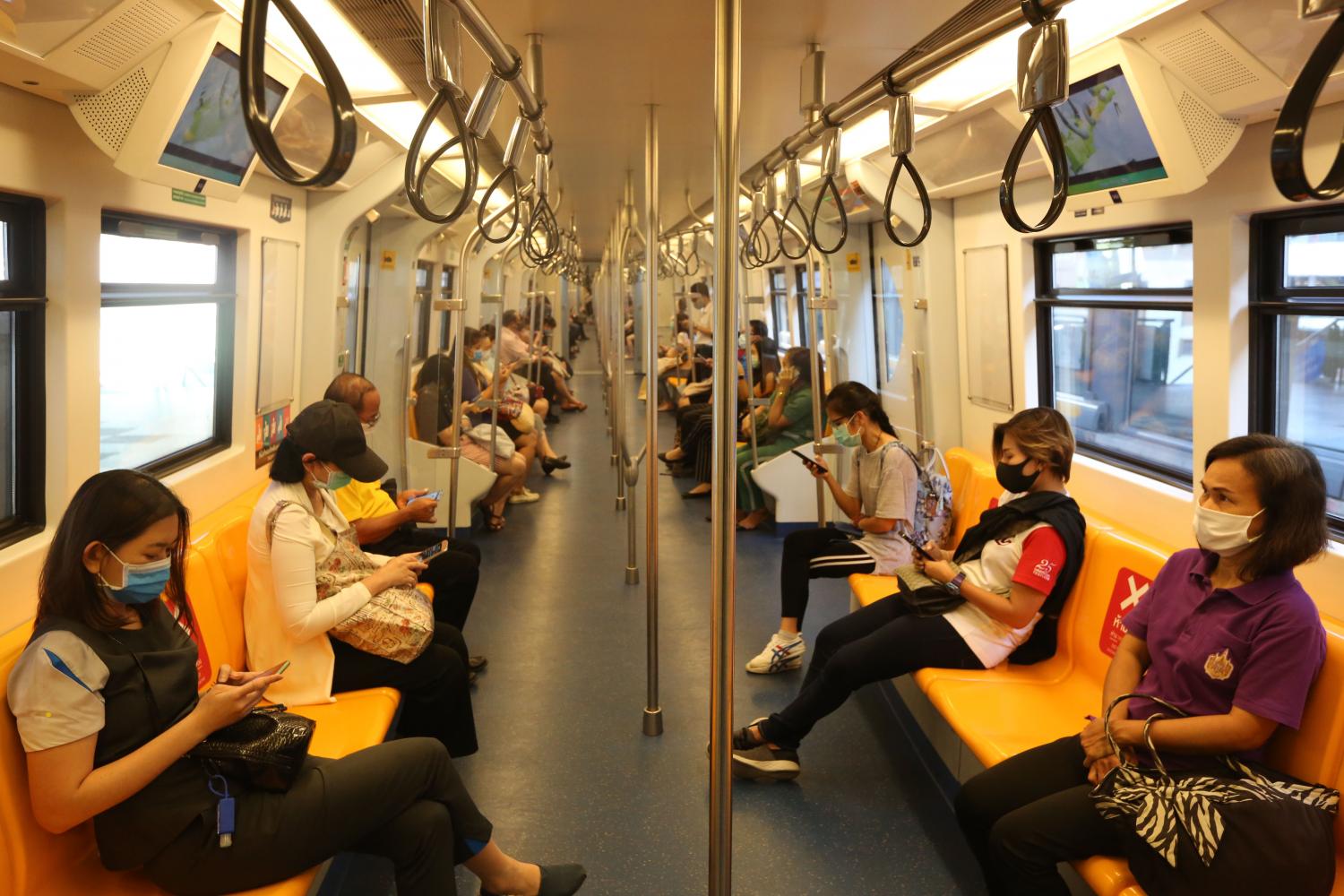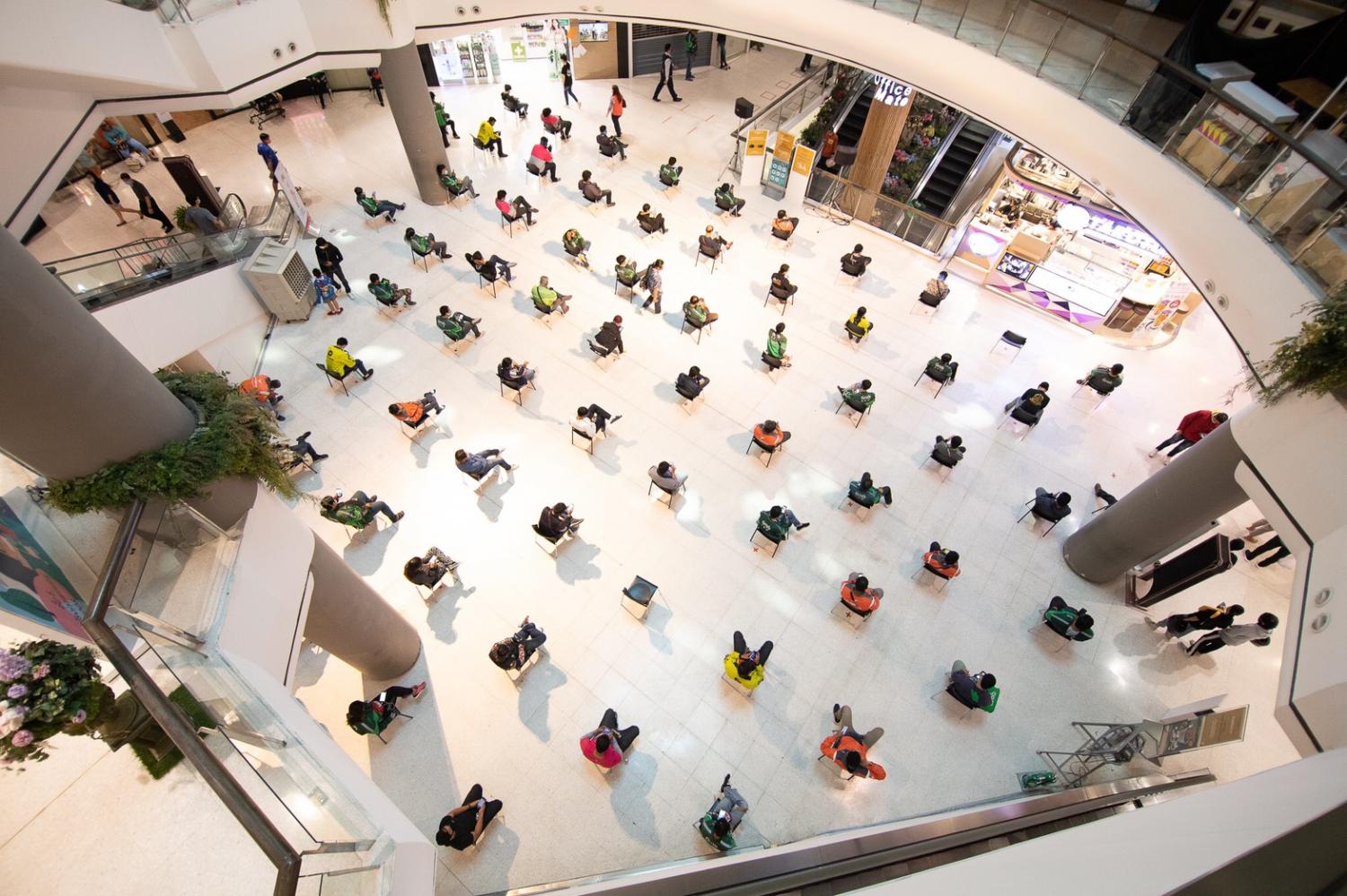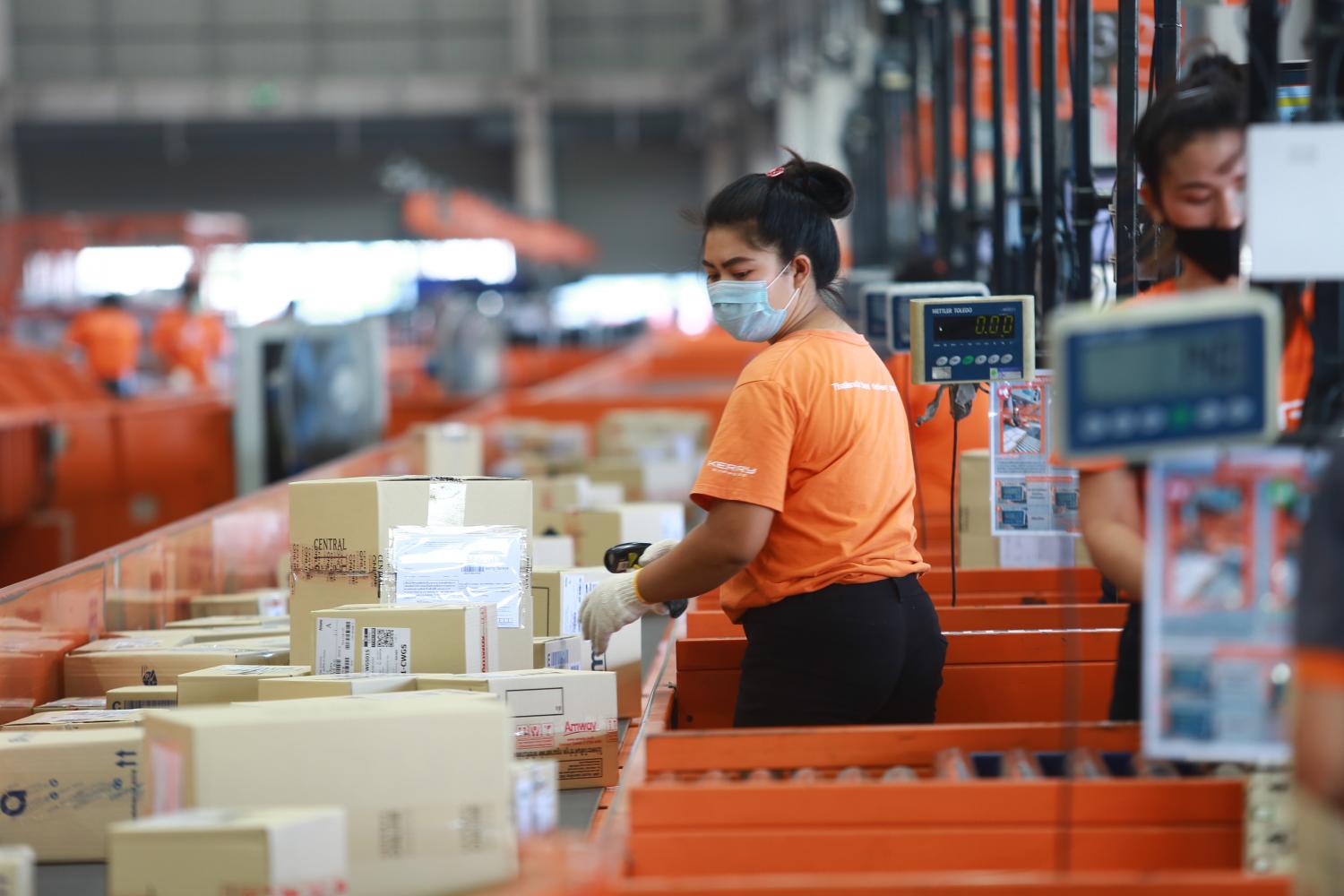
The business world won't be the same after the Covid-19 pandemic is over, with technology in the limelight.
From social distancing measures to tech tools used to flatten the curve, the Covid-19 crisis has disrupted the strategic decision-making framework for organisations, with rebuilding necessary for business survival.
Although no one knows when the pandemic will end, it's certain that the way businesses operate and the way we travel will not be the same.
Digital transformation
The coronavirus outbreak has prompted people to practice social distancing and work from home, which is a boon for online food orders, teleconferencing, telemedicine and e-learning.
These trends could become entrenched as people become more familiar with them.
Outbreak-driven digital transformation is likely to be adopted by businesses and workers, said Pun-Arj Chairatana, executive director of the National Innovation Agency (NIA). He said the Covid-19 crisis is triggering significant change among individuals and business operators who may have been reluctant to embrace digital technology, nudging them the opposite direction.
The crisis has habituated people to online food ordering, shopping and entertainment, as well as virtual classrooms, digital wallets and e-meetings, Mr Pun-Arj said.
According to networking and technology giant Cisco Systems, Thailand's online meetings via Cisco's WebEx system reached 239,896 in March, up 766% from February, the biggest jump in Asean, as people in Thailand engaged more in e-meetings as employees worked from home.
The number of participants in WebEx video conferencing surged 3,013% to over 1 million people from February to March.
Vatsun Thirapatarapong, managing director of Cisco Systems Thailand and Indochina, said the recent roll-out of the royal decree to ensure the legality of e-meetings will hike demand for video conferencing among the public sector and SET-listed companies.
With the legislation, there is no longer a requirement that a legal e-meeting have at least one-third of participants at the same place for a quorum.
Anantaporn Lapsakkarn, senior researcher at Kasikorn Research Center (K-Research), said online food delivery through apps this year is projected to grow 17% from 33-35 billion baht in 2019, whipped up by the outbreak as restaurants were forced to close.
He is uncertain whether online food delivery service via apps will continue at such a rapid pace after the lockdown because the service is still more costly than eating out.
"Restaurants are expanding online and handling their own deliveries without relying on apps and super apps, instead of spending more time on working with new food merchants to collaborate on delivery," Mr Anantaporn said.
Telemedicine is also gathering pace among Thais.
Panote Prapansilp, co-founder of See Doctor Now, a telemedicine app, said that since February hospitals have become more interested in integrating teleconsulting into their services to ease traffic at hospitals. Telemedicine bills could soon be covered by state welfare and private insurance, he said.
Mr Panote said the Covid-19 crisis could change the mindset of patients and health service providers if they attach more importance to telemedicine.
Patients may choose to go to hospitals only when they need physical treatments by doctors, such as stomach pain or ailments requiring surgery, he said.
Somwalee Limrachtamorn, managing director of Nielsen Thailand, a media and consumer research firm, said the outbreak will accelerate online-and-offline integration in the retail sector.
Social media will become the mainstream communication channel, with brands creating customer engagement through their social media to increase sales, she said.
"Brands and businesses need to be prepared for this trend and make ad content more creative," Ms Somwalee said.

Delivery drivers from various companies await orders at a Central mall. Food delivery has become the norm during the outbreak.
Efficient productivity
As market forces and customer behaviour change during the pandemic, Kasikornbank (KBank), the country's largest lender by assets and biggest mobile banking service provider, plans to redefine its business plan by accelerating its digital push.
"Customers previously visited branches to either make financial transactions such as advisory and mutual fund purchases or meet other people," said chief executive Kattiya Indaravijaya. "We now must develop other channels that still enable them to stay in touch, but in a way that aligns with social distancing. We must be able to facilitate them, allowing customers to open accounts faster and further shift towards digital to match their lifestyle."
The bank set a 6P strategy, comprising product, price, place, promotion, productivity and people.
Mrs Kattiya said the bank must consider whether existing products should be revamped and prices lowered as a part of its digital mission. How KBank communicates with customers must be changed using K Plus, the bank's app, keeping them aware of promotions.
"If we want folks in the provinces to use our services, prices must be lowered," she said. "The question is how to maintain profit if prices are cut. We want to access provincial customers who previously weren't our target, and this indicates that the current promotion channels aren't the answer."
Productivity is crucial because it will cut costs, enabling the bank to offer products and services at lower prices, she said.
"We must deliver good products at affordable prices to access low-income earners," Mrs Kattiya said. "We must fight startups and globalisation, which has no boundaries, by lowering price. Others offer cheaper prices, so we must get to that point."
After the crisis, many traditional services could be wiped out as behaviour changes, she said. Use of cash will decline.
ATMs will play a greater role because they will serve as access points where new K-eSavings account holders can verify their identity without going to branches, Mrs Kattiya said.
KBank saw online transaction volume rise 8% in the first quarter from last year to 700 million as the lockdown increased demand in the digital channel. The bank aims for a 37% surge in online financial transaction volume through app K Plus to 11.6 billion, and a 24% increase in K Plus users to 15 million this year.
Keep your distance
Suksit Suvunditkul, chief executive of Deevana Hotels and Resorts, said social distancing will become a habit as the pandemic will likely take over a year to wind down.
While tourism businesses eke out a living, hotel operators must rethink the hygiene of their procedures, starting from check-in, he said.
All properties under Deevana Hotels and Resorts are preparing guidelines covering the safety of both guests and hotel staff, which will be ready for implementation once travel activities are allowed.
Mr Suksit said the outbreak accelerated the cashless trend. The company is encouraging guests to use credit cards or mobile banking to prevent virus spread through banknotes or coins.
Deevana is also seeking cooperation from staff, urging them to drive their own vehicles to work rather than ride-sharing. It is also reducing the capacity of each shuttle service for employees to avoid the risk of infection. The canteen for staff has a schedule for each group to limit crowding.
Hotel employees have to attend additional training on proper service such as offering guests a welcome while keeping physical distance, ensuring standards will not suffer.
Mr Suksit said the group wants to appoint a new position, cleanliness manager, who will be responsible for monitoring hotel operations using safety and hygiene checklists.
"As long as people have to move from one place to another, social distancing is always essential," he said.
Hoteliers are expected to strictly comply with the standard operating procedures from the Thai Hotels Association to ensure safety and hygienic services.

The distribution centre at parcel delivery service Kerry Express faces a considerable spike in volume. Somchai Poomlard
Perfect storm
Yol Phokasub, chief executive of Central Retail Corporation (CRC), said Covid-19 is a global concern that affects all people and companies. Every business model should change in line with customers' behavioural changes, Mr Yol said.
"People's mindset has changed because of the virus, so we have to prepare for a new paradigm," he said.
For the short term, CRC aims to be efficient with its cash flow, Mr Yol said.
For the medium term, the company wants to strengthen its omnichannel platform. The company will also invest for future growth, be it the expansion of the new stores, spending on employee education, or focusing on e-commerce and training to become more customer-centric.
"We have talked about retail business disruption the past few years, and Covid-19 has acted as an accelerator to make it happen faster," Mr Yol said. "This is a perfect storm opportunity, as CRC developed its omnichannel platform a few years ago in response to this situation. We are moving in the right direction and will continue.
"We are stepping into the new economy now. To restart the business model is not enough, we need to reset the business model. Coronavirus will not be with us for a short time, but probably longer than people think."
Any business model that aligns with social distancing and a touchless society is likely to last longer, Mr Yol said.
Nadim Xavier Salhani, chief executive of Mudman Plc, the operator of Dunkin' and Au Bon Pain, said many consumer behavioural changes are likely to be permanent after the virus is controlled and restaurants have to follow suit.
"Customers are going to be concerned about health, hygiene, germs, sustainability and the environment," he said. "Restaurants need to reinvent themselves and focus on simplicity, sustainability, Instagramable menus and affordable prices, which brings us to the landlords. If the landlords do not review their rent policies and make them more affordable, no restaurant will open in their venues. Everything has to be rebooted."
According to Mr Salhani, the new business model means minimal investment, better margins and faster returns, with a strategy that can be easily replicated or written off should there be another pandemic.
Moreover, labour productivity will have to improve substantially, as Thailand may not enjoy cheap labour as in the past. Mr Salhani expects labour to be aggressively unionised.
"The delivery business will become a mainstay. I predict a new and innovative delivery programme will arrive at customers' homes," he said. "We need to adapt to these new trends and adjust our business accordingly, meaning a lot will change."